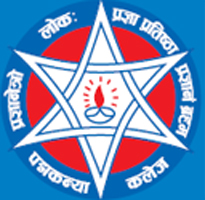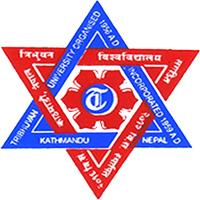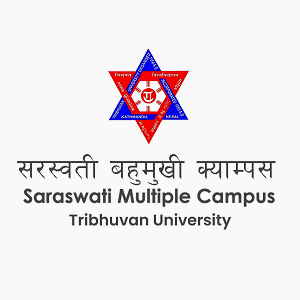Overview
MA in Economics at Tri-Chandra Campus, Ghantaghar, Kathmandu (affiliated with TU)
The Master of Arts in Economics at Tri-Chandra Campus, affiliated with Tribhuvan University (TU), is a comprehensive postgraduate program designed to provide students with a deep understanding of economic theories and policies and their applications in real-world scenarios. This program equips students with analytical and research skills and fosters critical thinking to address complex economic challenges in today's dynamic global environment. The curriculum integrates advanced economic concepts with practical approaches, making it ideal for aspiring economists, policymakers, and researchers.
Program Duration
The MA in Economics program spans two years and is divided into four semesters. Each semester includes a combination of core subjects, electives, research work, and seminars. The structured timeline ensures progressive learning and specialization in economics, culminating in a thesis or research project in the final semester.
Eligibility Criteria
To be eligible for admission to the MA in Economics program at Tri-Chandra Campus, applicants must fulfill the following criteria:
-
Completion of a Bachelor's degree in Economics or a related field from a recognized institution.
-
Must have a minimum CGPA of 2.0 or second division in the undergraduate program.
-
Students from other disciplines may need to take prerequisite courses as determined by the university.
Admission Process
-
Application Submission: Submit the application form at the campus admission office.
-
Entrance Examination: You must appear for Tribhuvan University's entrance test, which assesses your knowledge of economics and related analytical skills.
-
Merit List: Admission is granted based on merit, as determined by entrance exam scores and academic performance.
-
Document Verification: Provide all necessary documents, including academic transcripts, recommendation letters, and proof of citizenship.
-
Enrollment: Complete the enrollment process by paying the required fees.
Course Outline
The curriculum is developed to cover both theoretical and applied aspects of economics, providing a robust foundation for specialization. Below is an overview of the course structure:
Year 1, Semester 1:
-
Microeconomic Theory
-
Macroeconomic Theory
-
Quantitative Methods for Economics
-
Development Economics
Year 1, Semester 2:
-
Econometrics
-
Public Economics
-
International Trade
-
Elective: Environmental Economics or Agricultural Economics
Year 2, Semester 3:
-
Research Methodology in Economics
-
Monetary Economics
-
Globalization and Economic Policy
-
Elective: Labor Economics or Industrial Economics
Year 2, Semester 4:
-
Advanced Econometrics
-
Economic Policy Analysis
-
Thesis or Research Project
-
Elective: Health Economics or Urban Economics
Subjects Offered
-
Microeconomic Theory
-
Macroeconomic Theory
-
Econometrics
-
Development Economics
-
Public Economics
-
International Trade
-
Environmental Economics
-
Agricultural Economics
-
Monetary Economics
-
Labor Economics
-
Industrial Economics
-
Health Economics
-
Urban Economics
Program Objectives
-
To provide advanced knowledge of economic theories and their practical applications.
-
To develop research and analytical skills for policy formulation and economic analysis.
-
To enable students to take on leadership roles in academia, government, and the private sector.
-
To foster a critical understanding of global and local economic challenges.
-
To equip students with tools for quantitative and qualitative economic research.
Teaching Methodology
The program employs traditional and modern teaching methodologies, including interactive lectures, case studies, research assignments, and group discussions. Professors integrate theoretical knowledge with practical insights through workshops, simulations, and guest lectures by industry experts. Students are inspired to participate in seminars, conferences, and collaborative projects to enhance their learning experience.
Learning Outcomes
Graduates of the MA in Economics program will:
-
Master advanced economic theories and models.
-
Develop strong quantitative and qualitative research skills.
-
Analyze and interpret economic data effectively.
-
Formulate and evaluate economic policies.
-
Understand global economic trends and their implications.
-
Contribute to academic research and policy-making processes.
Future Scope
The MA in Economics program opens up opportunities for further academic pursuits, such as Ph.D. programs in Economics or related fields. It also provides a foundation for specialization in International Development, Financial Economics, or Environmental Economics. Graduates can contribute to addressing global economic challenges and shaping sustainable policies.
Career Prospects
Graduates of the program can grab career opportunities in:
-
Government and public policy
-
International organizations (e.g., UN, World Bank, IMF)
-
Research and academia
-
Banking and financial institutions
-
Corporate sector as economic analysts or consultants
-
Non-governmental organizations (NGOs) focusing on development and sustainability
-
Journalism specializing in economic reporting
Scholarship Opportunities
Tri-Chandra Campus offers scholarships based on academic merit, economic need, and institutional or government quotas. Scholarships for marginalized communities and women are also available. Students are advised to inquire about specific opportunities during the admission process.
Fee Structure
Tribhuvan University determines the tuition fees for the MA in Economics program, which are subject to periodic updates. The campus administration office has detailed fee structures.
Extracurricular and Co-Curricular Activities
Students have opportunities to engage in activities like economic forums, research symposiums, and academic competitions. These initiatives enhance leadership, teamwork, and networking skills, complementing their academic learning.
Real-World Application
The program emphasizes real-world applications through internships, policy analysis projects, and fieldwork. Students gain hands-on experience in addressing economic issues, such as poverty alleviation, trade policies, and sustainable development, preparing them for impactful careers.
Sustainability and Social Impact
The curriculum integrates sustainability by addressing environmental economics, resource allocation, and equitable growth. Students learn to design policies that promote social equity and environmental sustainability, contributing to long-term societal well-being.
Skill Development
The program enhances critical skills, including data analysis, economic modeling, communication, and problem-solving. Students also develop competencies in using statistical software and tools essential for modern economic analysis.
Global Perspective
The program prepares students to understand and address global economic challenges with courses on globalization, international trade, and monetary policy. Students gain insights into international markets, trade relations, and cross-border economic dynamics.
Facilities and Support
Tri-Chandra Campus provides state-of-the-art classrooms, a well-equipped library with access to academic journals, and computer labs with statistical software. Support services include academic counseling, mentorship programs, and career guidance to assist students achieve their goals.
Why Choose an MA in Economics?
The program stands out for its rigorous curriculum, experienced faculty, and focus on practical learning. It equips students with the knowledge and skills required to tackle pressing economic issues and contribute meaningfully to society and the economy.
Is the MA in Economics Right for You?
This program is an excellent choice if you are passionate about understanding economic systems, analyzing policies, and solving real-world problems. It provides a blend of theoretical depth and practical relevance, making it ideal for individuals seeking impactful careers.
What is the Future of the MA in Economics?
The demand for economists is expected to grow as economies face challenges such as globalization, technological advancement, and climate change. Graduates will be critical in designing policies, conducting research, and contributing to sustainable development.
How to Improve Your Study of Economics Education
To excel in economics, adopt an interdisciplinary approach, integrating insights from related fields such as statistics, sociology, and political science. Read academic journals regularly, participate in seminars, and practice data analysis using software like STATA or R. Building a strong foundation in mathematics and staying updated on global economic trends are equally crucial.
Conclusion
The MA in Economics at Tri-Chandra Campus offers a strong foundation for students aspiring to excel in economics. The program's blend of advanced academics, practical applications, and career-oriented learning prepares graduates to address contemporary economic challenges and contribute to global and local policy-making. Whether studying higher studies or entering the workforce, this program offers the tools and knowledge needed for success.
Contact Tri Chandra Multiple Campus's administrative office for detailed information on the MA in Economics course, including fees, scholarships, facilities, counseling, eligibility criteria, etc.

















